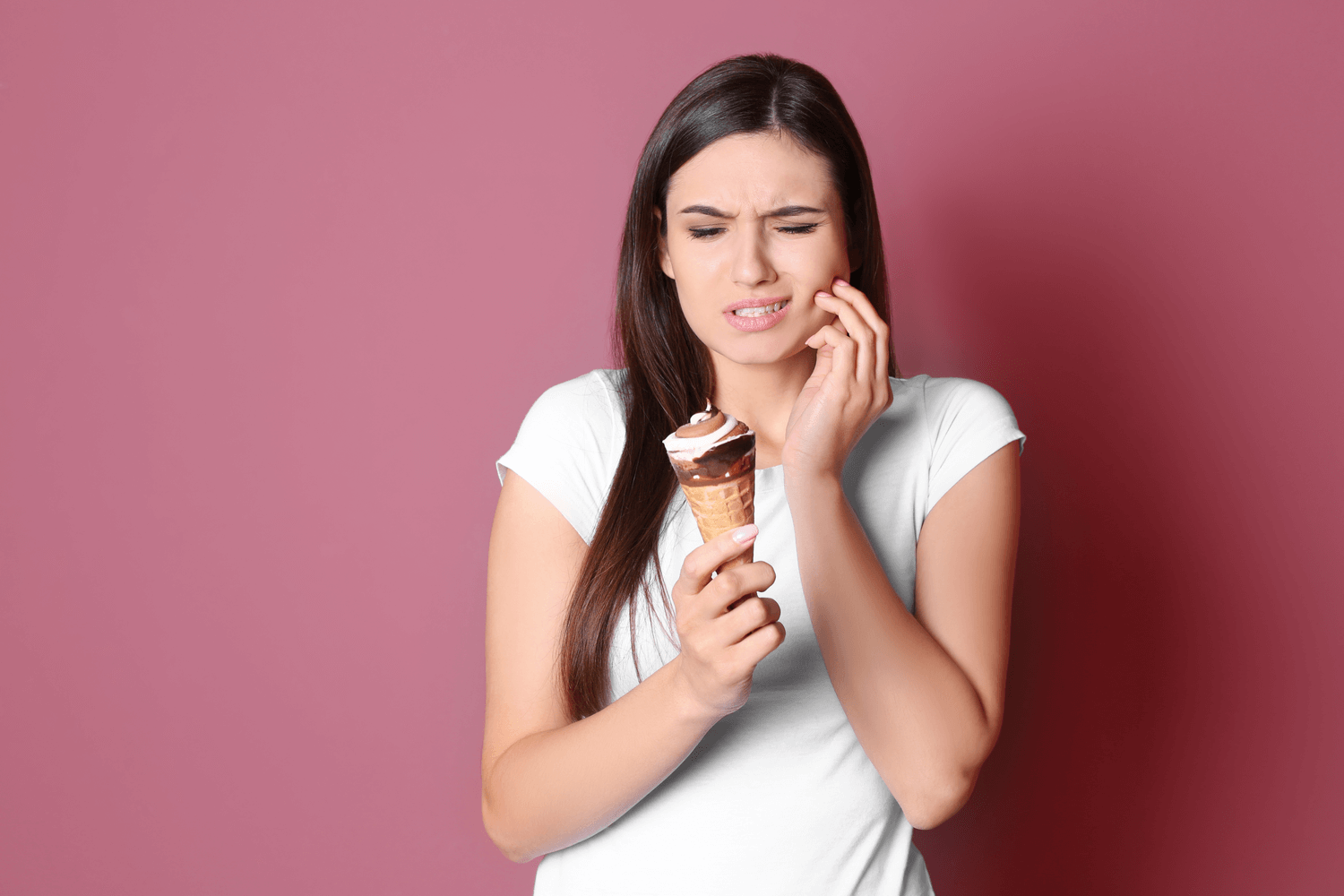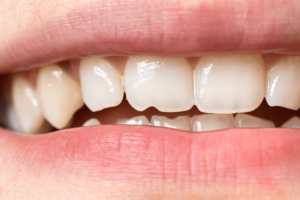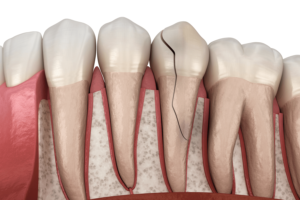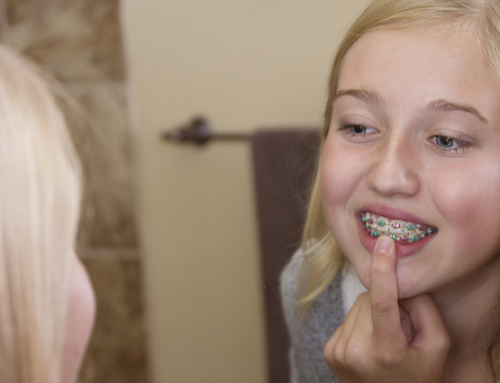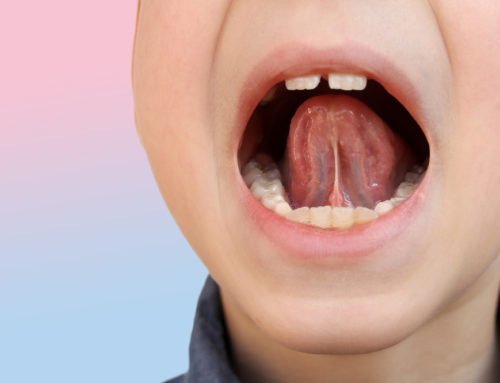Treating Sensitive Teeth | What Causes Tooth Sensitivity?
What is Tooth Sensitivity?
If the thought of too hot or too cold food hitting your teeth makes you cringe in pain, you might be experiencing tooth sensitivity or dentin hypersensitivity. Several factors can contribute to why your teeth are sensitive to heat or cold.
What Causes Tooth Sensitivity?
The main cause of sensitive teeth include
- Worn or damaged tooth enamel
- Exposed tooth roots
- Cavities
- Chipped teeth
- Cracks in the teeth
- Gingivitis (gum disease)
- Acidic foods
- Brushing too hard
- Some kinds of toothpaste
- Receding gums
- Recent dental work
- Grinding your teeth
- Tooth decay
- Using a hard-bristle toothbrush
All of the above factors can lead to sensitivity. You should be especially aware of when you notice painful sensations in your mouth. Your body may be trying to warn you that something is wrong.
For instance, you might be in the habit of brushing your teeth too hard and without proper form. As a result, your gums may be receding. The farther your gums recede the more the roots of your teeth will become exposed.
The gums help protect your teeth and, more importantly, the soft dentin inside of your teeth. The dentin layer directly encases the nerves and pulp at the core of your teeth. Dentin is also porous on a microscopic level, which allows the normal level of sensitivity to occur in your teeth. However, when the enamel protecting the dentine becomes thin or damaged, it’s easier for heat or cold to penetrate through the teeth and impact the nerves.
Below are some more in-depth explanations of what causes tooth sensitivity.
Tooth Sensitivity | The Root of the Cause
Rough Brushing & Flossing
Brushing your teeth roughly does not make for cleaner teeth, nor does violently flossing. Buy a toothbrush with soft bristles and take your time. Because this is common in both adults and children – parents, it is very important that you practice and teach your children good oral hygiene habits, such as how to gently yet properly floss and brush. With more care, your teeth should not be as sensitive with time.
Toothpaste & Mouthwash
Many types of toothpaste that have tooth-whitening chemicals may be too strong for your teeth. This makes your enamel more sensitive. Instead, try a toothpaste brand aimed at sensitive teeth.
While this solution doesn’t work for everyone, it may be your quick tooth sensitivity fix. Or for kids, try a mild-flavored toothpaste as opposed to bubblegum or other strong flavors. The same thing goes for mouthwash.
Some mouthwash formulas contain alcohol and other strong chemicals that could be irritating your teeth and rendering them more sensitive. Either try a more neutral rinse or skip it altogether to focus on flossing and brushing more thoroughly.
Bruxism
Teeth grinding, or bruxism puts pressure on your teeth and gums, and can seriously distress teeth in both adults and children for different reasons. The grinding wears down enamel and can even expose the dentin, part of the inner tooth.
Bruxism can even lead to cracked teeth! Some children grow out of bruxism and some adults only suffer bruxism through bouts of stress. Because of this, a nightguard may be the perfect fix to keep your teeth from rubbing together or clenching your jaw while you sleep.
Acidic Foods
Foods and beverages that have a higher acidic content can actually wear down the enamel of your teeth. Try to steer clear of eating too many foods high in citric acid or that have lots of sugar in them. Foods you should avoid for sensitive teeth include:
- Citrus fruit
- Tomatoes
- Pickles
- Yogurt
- Sodas
- Fruit juices
- Sports drinks
Chipped or Cracked Teeth
Kids are adventurous and yet sometimes clumsy. Some adults can also be clumsy! Plus, you never know when an emergency or accident might happen that makes you damage a tooth.
What Causes a Chipped or Cracked Tooth?
- Slipping or falling
- Chewing on hard candy
- Crunching ice
- Trying to eat popcorn kernels
- Contact sports
- Grinding your teeth
- Bruxism
- Car accidents
If your child does chip or crack a tooth, get to your pediatric dentist quickly for tooth treatment and repair. The severity of the chip or crack will determine whether you need dental bonding or a dental crown.
Cavities
Adults get them. Kids get them. Either way, they are annoying! Proper brushing and flossing can prevent cavities and the gnarly sensitivity that sometimes accompanies them.
Fillings are the most common treatment for problematic cavities. However, more serious cavities might require more intense restorative treatments like veneers, crowns, or even root canals.
Genetics
Genetics can play a role in how sensitive your teeth are to stimuli. Genetic issues like enamel hypoplasia or dentinogenesis imperfections can make your enamel weaker and less effective at protecting the dentin.
To treat these genetic disorders and reduce tooth sensitivity, dentists use fillings, bonding, and crowns to protect your teeth.
Gum Disease
Great oral hygiene should keep gum disease away, but unfortunately, some people’s habits fall to the wayside. Gum (periodontal) disease is more often seen in adults due to wear and tear over time. Yet some children, unfortunately, develop gum disease, which often leads to extreme sensitivity in teeth. Depending on the severity, non-surgical or surgical treatment may be necessary.
Dealing with sensitive gums is different from sensitive teeth. There are different symptoms, causes, and treatments for each condition.
Related: Causes and Treatments for Gum Sensitivity
Adults may experience tooth sensitivity due to receding gums and tooth decay. Children mostly notice tooth sensitivity because of cavities and aggressive brushing.
No matter the cause of your tooth sensitivity, there is help for that smile. Start with a great oral hygiene regimen at home, and don’t forget to get routine dental checkups.
How Do You Stop Sensitive Teeth Pain?
We all experience a little tooth pain from time to time, but if you’re experiencing it regularly you should set up an appointment with your dentist to get your teeth checked out. Depending on the condition of your teeth, your dentist may recommend one or more of the following options.
- Desensitizing toothpaste
- Fluoride
- Bonding
- Desensitizing treatments
- Gum grafting
- Root canal
- A dental crown
- Tooth inlays
For tooth sensitivity without high degrees of gum recession or tooth decay, you might find that desensitizing toothpaste or gel is the most effective treatment. However, if your teeth have been dealt significant damage, then you’ll likely need to get the tooth completely fixed, bonded, or filled.
What Is The Fastest Way To Relieve Tooth Sensitivity?
In terms of relieving mild or spontaneous tooth pain, you can take a pain reliever like ibuprofen or acetaminophen, You can also combine using desensitizing toothpaste with using an extra-soft toothbrush.
If your tooth sensitivity is due to damage to your tooth, then the best way to permanently deal with your tooth pain is to see a dentist for a diagnosis. They will then create a treatment plan to help you relieve the pain from your sensitive tooth.
Can Tooth Sensitivity Go Away?
Unfortunately, tooth sensitivity tends to not go away on its own. Especially if the root cause of your tooth sensitivity is your receding gum line. In fact, having sensitive teeth is likely a sign that something else is wrong in your oral health, and you should get it checked out soon.
If you leave untreated pain hoping it will go away on its own, the underlying cause could develop into a serious dental problem. For instance, if you let your gums keep receding, you might have to have surgery to graft your gums back over your teeth.
How to Prevent Hypersensitive Teeth
We’ve mentioned it a couple of times already in this post, but it’s actually an easy thing to remember. If you want to prevent hypersensitivity in your teeth, you should brush your teeth twice a day with an extra-soft toothbrush and use fluoride toothpaste.
You should also use proper brushing techniques to prevent irritating or damaging your gums. Never scrub your teeth while brushing.
Always use gentle strokes starting above the gumline on your upper teeth and brush down. Then repeat from below the gumline on the bottom teeth. You should also floss your teeth daily.
Visit Snodgrass-King Dentistry for Sensitive Teeth Treatment!
Contact one of our Nashville pediatric dentists about tooth sensitivity and what may be causing yours! Request an appointment online today.


